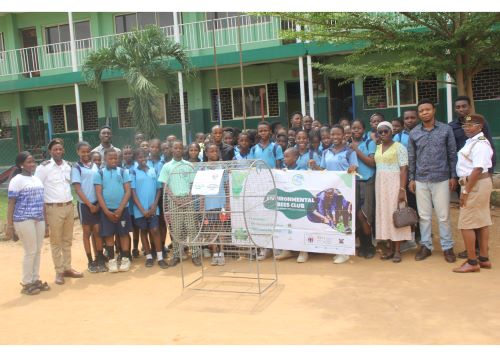In a bid to promote sustainable environment education among young people in Lagos State, Centre for 21st Century Issues (C21st Issues has established the Environmental Bees Club in Progress College School in Ojokoro Local Council Development Area (LCDA) of the state. The event featured talks, interactive sessions and the donation of a recycling bin.
In his opening address, The Facilitator of the project, Simileoluwa Adewale said that it is essential to engage the pupils at a tender age so that they can be great ambassadors of environmental sustainability in their various areas even outside the school premises.
Speaking on the significance of the project, Adewale said: “Environmental Bees Club is aimed at raising awareness of environmental issues and ways we can solve them. These kids have an active role to play in the environment we live in, hence the launching of this programme in the school.”
Earlier, in his submission, the Supervisor of Education in Ojokoro LCDA, Bamidele Ogundele, lauded the organizers of the project especially as it empowers the children in the area of converting waste to wealth.
“This is a very educative programme and I want to encourage the organisers to consider taking this wonderful initiative to public schools as well so that children of those schools can also be beneficiaries of this,” he advocated.
On his part, the Supervisor for Environment, Ojokoro LCDA, Jamiu Odebiyi, congratulated the management of Progress College for being the trailblazer of environmental advocacy among the schools in Ojokoro.
In his remarks, the Principal, of Progress College, Mr. Otuokpa Prince Joe was full of praise to C21st Issues for choosing his school as the pioneer beneficiary of the programme in Ojokoro LCDA
He said: “The lectures given by the speakers were very expository and it opened our eyes to the importance of waste recycling and waste management. I also want to appreciate Ojokoro LCDA for donating this wonderful waste bin to the school, this shows the importance they attach to maintaining a cleaner and safer environment in the community.”

